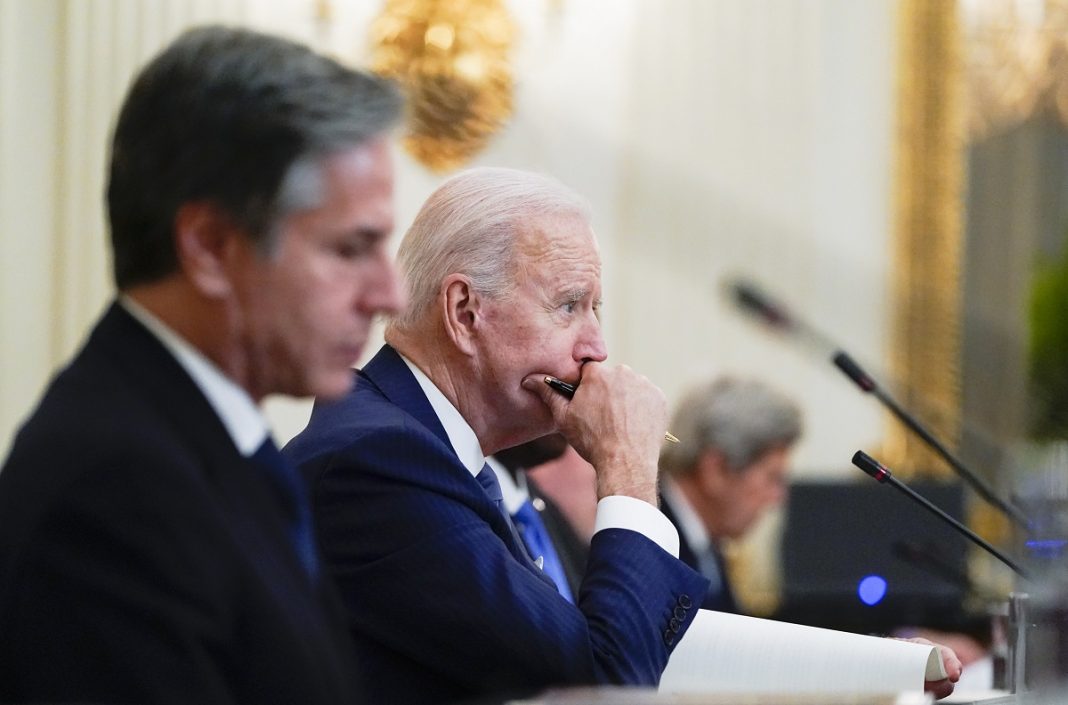The new approach by the Joe Biden administration shows just how concerned the US is about recent advances in Iran’s nuclear program. The US has not ruled out diplomacy on reaching an agreement to return to the 2015 nuclear agreement but did take it off the agenda last year.
The Biden administration started discussing the new approach in January and briefed its Israeli and E3 — France, Germany and the UK — allies about it in February, according to the 10 sources.
The proposal discussed included some sanctions relief if Iran froze some of its nuclear activities, mainly halting enriching uranium at 60% purity, according to four of the Israeli officials, Western diplomats and US experts.
One Israeli official and one Western diplomat stated that the Iranians are aware of the US discussions but have so far rejected the idea.
The approach is similar to one led by White House National Security adviser Jake Sullivan and CIA director Bill Burns, who were senior members of the Barack Obama administration in 2013 when Iran and world powers signed the 2013 Joint Plan of Action (JPOA), which included a short-term freeze on parts of Iran’s nuclear program in return for partial sanctions relief.
The original interim agreement was for a period of six months and was renewed several times until the full nuclear deal was reached in July 2015.
A White House National Security Council spokesperson said President Biden is “absolutely committed to ensuring Iran never acquires a nuclear weapon, and we still believe diplomacy is the best way to achieve that objective”.
The spokesperson added that the administration is preparing for all possible options and contingencies in full coordination with its partners and allies, including Israel. But the White House “will not comment on second-hand rumors about diplomatic discussions, other than to caution that nearly all such rumors are false.”
Iran denies seeking nuclear weapons, stressing its nuclear technology is solely for civil purposes.
Iranian officials have so far rejected the new approach, stressing that it didn’t work before and they don’t want a deal that includes anything less than the 2015 nuclear agreement, according to the three Israeli officials and Western diplomats.
Iran has cautioned the United States that the window of opportunity for an agreement on reviving the nuclear deal will not remain open forever, urging Washington to adopt a constructive approach to salvage the accord.
Iran showed to the world the peaceful nature of its nuclear program by signing the JCPOA with six world states — namely the US, Germany, France, Britain, Russia and China. But, Washington’s unilateral withdrawal in May 2018 and its subsequent re-imposition of sanctions against Tehran left the future of the deal in limbo.
Negotiations between the parties to the landmark agreement kicked off in Vienna in April 2021, with the intention of bringing the US back into the deal and putting an end to its “maximum pressure” campaign against Iran.
The discussions, however, have been at a standstill since August 2022 due to Washington’s insistence on not lifting all of the anti-Iran sanctions and offering the necessary guarantees that it will not exit the agreement again.
